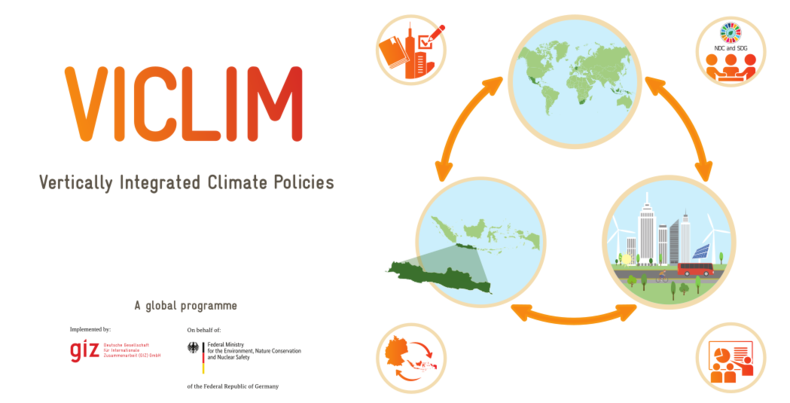Click here to register!
MER Of Mitigation Actions: Case of Indonesia
The system 'PEP-Online'
An important aspect of climate policy is the Monitoring, Evaluation and Reporting (MER)[1] mechanism for climate actions. After the issuance of Presidential Regulation No. 61/2011 on a National Action Plan for GHG Emission Reduction[2] and as part of the country’s overall national MRV-system (Monitoring, Reporting and Verification), the Government of Indonesia established a first MER mechanism for the mitigation action plans at the national and regional / provincial level (RAN-GRK and RAD-GRK[3]). The RAN-GRK Secretariat – also known as Sekran – under the National Ministry of National Development Planning (BAPPENAS) was put in charge of managing it.
At the beginning era, from 2012 to 2016, the system was rather ‘conventional’, i.e. using offline processes: the ‘Provincial working groups on GHG emissions reduction’ (Pokja RAD-GRK) – consisting of the government agencies responsible for mitigation activities in the provinces in the sectors of forestry, agriculture, energy, transportation, waste management, and the coastal and marine sector – reported their mitigation actions and basic emissions (reduction) calculations by using spreadsheet templates and sending these to the RAN-GRK Secretariat. Sekran then compiled the data from the 34 provinces, transferred the data into its own system and produced aggregated reports.
Shortcomings and difficulties of this approach became apparent. There was error-proneness due to the data transfer. There were time constraints due to long feedback loops for quality assurance. There was duplication of work. For this reason, BAPPENAS developed a web-based tool and changed, in 2017, the system to the platform ‘PEP-Online’.
Support by VICLIM project
Since then, VICLIM – together with a range of other international cooperation partners – has supported the implementation and use of the platform:
- Through a series of workshops, BAPPENAS and Sekran were enabled to assure the quality and finally confirm former (i.e. pre-2018) progress reports on provincial mitigation actions and to finalise the data transfer into the new PEP-Online system.
- Staff from the Regional / Provincial Departments for Development Planning (BAPPEDA) were coached on their administrative tasks within the new system.
- Technical guidelines for MER in the waste sector are developed. The specific GHG emissions calculation methodologies were agreed upon and are now used by all provinces for monitoring and evaluating the mitigation actions in waste management.
All things considered, the PEP-Online platform made the processes of monitoring, evaluation and reporting (MER) of mitigation actions simpler, more effective and efficient, as well as more transparent and better accessible for further data analysis. It collects in one single location all potential GHG emissions reductions of projects implemented by both, the central government and provincial governments. Therefore, BAPPENAS can regularly compile information from mitigation projects throughout the country and inform decision makers on the progresses made. With the PEP-Online website, the Government of Indonesia also increased transparency and accountability. A lot of the information about projects is now easily accessible by the public and data is exchanged more easily between stakeholders.
References
- ↑ In Bahasa Indonesia: Pemantauan Evaluasi Pelaporan (PEP)
- ↑ In Bahasa Indonesia: 'Peraturan Presiden' or 'Perpres'. https://jdih.setkab.go.id/PUUdoc/17288/PERPRES%20612011.pdf
- ↑ In Bahasa Indonesia: Rencana Aksi Nasional Penurunan Emisi Gas Rumah Kaca (RAN-GRK) and Rencana Aksi Daerah Penurunan Emisi Gas Rumah Kaca (RAD-GRK)




















